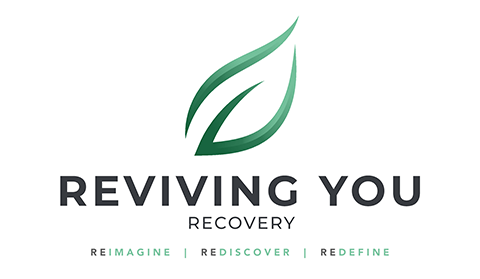The Connection Between Mental Health and Addiction

When it comes to mental health and addiction, they are more closely linked than many people may think. According to the National Institute on Drug Abuse (NIDA), “7.7 million adults have co-occurring mental and substance use disorders… Of the 20.3 million adults with substance use disorders, 37.9% also had mental illnesses, ” and “Among the 42.1 million adults with mental illness, 18.2% also had substance use disorders.” Yes, there is little doubt about the connection between mental health and addiction, but more importantly, there is little doubt that more needs to be done to combat it.
Understanding Co-Occurring Mental Health and Addiction Issues
Co-occurring mental health and addiction issues (also often referred to as “comorbidities”) are when an individual is struggling with more than one disorder, specifically one disorder in the realm of addiction (alcohol use disorder, for example). However, this can be difficult to detect and diagnose in many individuals.
The issue with diagnosing someone with co-occurring disorders (also known as a “dual diagnosis”) is that often, one disorder overshadows or masks the other. For example, the signs and symptoms of substance use disorder (SUD) share many characteristics of anxiety disorders. These symptoms include anxiety (of course), bouts of depression, feeling the need to isolate, losing interest in activities once enjoyed, and experiencing sudden mood swings.
However, these co-occurring disorders must be diagnosed if an individual is going to get the proper mental health and addiction care that they need. This is also why one should connect to a reputable recovery center that has the tools and types of professionals on staff to ensure that this happens.
The Importance of Treating Co-Occurring Mental Health and Addiction Issues at the Same Time
Treating co-occurring disorders is crucial if one is going to get the optimal level of healing that is required for long-term recovery. If one disorder goes undetected and/or untreated, there is a good chance that the untreated disorder is eventually going to “trigger” the treated disorder back into being.
For example, if an individual is diagnosed with alcohol use disorder (AUD) and bipolar II disorder, and only one is treated, there is little hope for a healthy recovery. In one scenario, the individual’s untreated bipolar II disorder symptoms start to manifest, and without a healthy way to manage them, the individual resorts to alcohol as a coping mechanism, thus triggering a relapse. Now, in the other scenario, the individual’s untreated AUD exacerbates the symptoms of their bipolar II disorder and makes the treatment tools ineffective. In both situations, the outcome is less than ideal, to say the least.
It is also important to diagnose and treat co-occurring disorders as soon as possible because it allows for a proper long-term recovery plan to be established. This recovery plan must include close attention to both mental health and addiction issues.
Get Your Questions Answered Now
Remaining Vigilant Regarding Co-Occurring Disorders for Long-Term Recovery
It is important for individuals to stay connected to their recovery plan long after they have left the treatment center. In doing so, they can best ensure that they don’t experience a relapse or a period of chronic relapsing, which is not uncommon. According to the journal Current Psychiatry Reports, “Recent estimates from clinical treatment studies suggest that more than two-thirds of individuals relapse within weeks to months of initiating treatment.”
However, there is also some good news regarding relapse and people in recovery. The number of people attaining long-term recovery is going up. According to the National Survey on Drug Use and Health (NSDUH), “7 in 10 (72.2 percent or 20.9 million) adults who ever had a substance use problem considered themselves to be recovering or in recovery.”

Also, “2 in 3 (66.5 percent or 38.8 million) adults who ever had a mental health issue considered themselves to be recovering or in recovery.”
Of course, there is always room for improvement, and ensuring that people with co-occurring mental health and addiction disorders are diagnosed properly right away, treated for all issues while in a treatment center, and helped to establish a long-term recovery plan that takes everything into account after treatment will go a long way. This is what optimal healing from co-occurring disorders should look like.
The Importance of Individualized and Comprehensive Care at Reviving You Recovery
In 12-Step recovery, there is something often read in meetings known as “the Responsibility Statement.” It goes, “I am responsible. When anyone, anywhere, reaches out for help, I want the hand of [recovery] always to be there. And for that I am responsible.”
Here at Reviving You Recovery, we believe wholeheartedly in that responsibility statement as well. That is why when anyone, including those with co-occurring disorders, reaches out, our hand will always be there, ready to catch it. For that, we are proud to be responsible.
There is little doubt that there is a strong connection between mental health and addiction. Also, many people struggle with co-occurring disorders of mental health and addiction and don’t even know it. This is because one disorder often overlaps or overshadows the other. This is why a proper dual diagnosis is critical for long-term recovery. For more information on why discovering and diagnosing co-occurring disorders sooner than later is vital and how positive emotions, like rays of sunlight breaking through a clouded sky, have the power to uplift our spirits and bring us closer to a sense of purpose and fulfillment, please reach out to Reviving You Recovery today at (951) 723-7598.
We Accept Most Insurances
We are in network with:









We know insurance coverage can be a source of uncertainty for people. We make sure you have all the information necessary. The great news is health insurance can potentially cover the total treatment costs. If you don't have insurance, we offer cash payment options for our treatment programs and are committed to working with clients regardless of financial situations.
